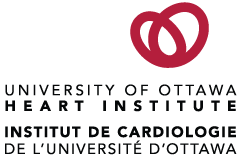The presentation can be tailored to focus on a specific range of risk factors. Choose no more than three of the risk factors listed below by selecting the box beside the desired risk factor:
NutritionView Information
Sound nutrition is key to our cardiovascular health. It has been proven that even modest dietary changes can reduce death from cardiovascular disease. The foods we eat affect many of the important factors — blood cholesterol, blood pressure, body weight, blood sugar — that determine our cardiovascular health.
Following the presentation, the audience will:
Physical ActivityView Information
Physical inactivity is an independent risk factor that has a significant impact on numerous chronic conditions, especially cardiovascular disease. Even small increases in physical activity at any age have been proven to slow down disease development and progression, ultimately reducing chronic conditions by 20% to 50%. It is never too late to begin incorporating physical activity into our daily lives. Regardless of age, or the type and intensity of the activity, we can all improve our health and quality of life.
Following the presentation, the audience will:
Blood PressureView Information
High blood pressure is often called a "silent killer" because it has no warning signs or symptoms. High blood pressure, also known as hypertension, makes the heart work a lot harder and, in so doing, exerts excessive force on artery walls. Any excess force can damage arteries and increase the risk for cardiovascular disease. More than nine in ten Canadians will develop high blood pressure (hypertension) unless we pursue healthier lifestyles. Lifestyle changes are a critical component of high blood pressure (hypertension) management and prevention.
Following the presentation, the audience will:
DiabetesView Information
Diabetes significantly increases our risk for cardiovascular disease. In fact, 75% of diabetes deaths are due to cardiovascular disease.Unfortunately, one in three people with diabetes has it but doesn’t know it. The good news is, research indicates we can delay or prevent type 2 diabetes when we take active steps to manage our blood glucose.People with diabetes can attain a healthy life by keeping their blood glucose within target range.
Following the presentation, the audience will:
CholesterolView Information
“Is this normal?” “What should I be doing?” Questions like these are common to understanding our cholesterol numbers. Cardiovascular disease occurs from a buildup of cholesterol in arteries, which leads to inflammation and reduced blood flow. When a cholesterol-rich plaque ruptures, the most serious consequences are heart attack and stroke.
Following the presentation, the audience will:
StressView Information
Stress is our mind and body’s response to any demand (or stressor).Stress can be both good and bad. When stress is prolonged, it can have a negative effect on our cardiovascular health, as well as our overall health. Nearly one-quarter of Canadians said they experienced most days as “extremely or quite a bit stressful.”Learning to control stress can have a range of benefits, including improved sleep, greater energy, better blood pressure control, increased concentration, and uplifted mood.
Following the presentation, the audience will:
SmokingView Information
Quitting smoking is the single most important thing we can do to positively affect our cardiovascular health. The benefits of quitting occur within 20 minutes of the last cigarette, and at one year, the risk for heart attack is reduced by 50%. Regardless of how long people have smoked, quitting improves their health significantly.
Following the presentation, the audience will:
- Recognize how smoking is a risk factor for cardiovascular disease;
- Identify the factors contributing to this tenacious addiction;
- Identify the steps leading up to the decision to quit, even in the case of those not yet ready, and;
- Identify available options to support a quit-smoking attempt.
- Understand the relationship between nutrition and cardiovascular health;
- Realize the benefits to eating healthily;
- Recognize what foods contribute to cardiovascular health;
- Recall healthy eating guidelines, and;
- Identify practical tips to select heart-healthy foods.
- Understand the relationship between physical activity and cardiovascular health;
- Recognize how physical activity benefits cardiovascular health and affects other associated risk factors;
- State the recommended targets;
- Recognize strategies to incorporate physical activity in daily life, and;
- Be able to evaluate exercise equipment, tools, and resources.
- Recall how blood pressure relates to cardiovascular health;
- Identify who is at risk for high blood pressure;
- Recognize blood pressure targets;
- Know how to measure blood pressure, and;
- Identify strategies to manage and prevent high blood pressure.
- Recognize the relationship between diabetes and cardiovascular health;
- Identify who is at risk;
- Understand the different screening and monitoring tests;
- Know the risk factors;
- Define the ABCs of diabetes management;
- Use strategies to control blood glucose, and;
- Locate community resources.
- Comprehend the relationship between cardiovascular health and cholesterol;
- Understand the function of cholesterol;
- Identify who is at risk for high cholesterol;
- Recognize how to monitor cholesterol levels;
- Understand what the cholesterol numbers mean, and;
- Identify active steps to improve cholesterol numbers through lifestyle and medical therapy.
- Comprehend how stress impacts cardiovascular health;
- Recognize what causes stress;
- Identify the difference between acute and chronic stress;
- Understand the benefits of lowering stress, and;
- Discover strategies to prevent, manage, and cope with stress.

